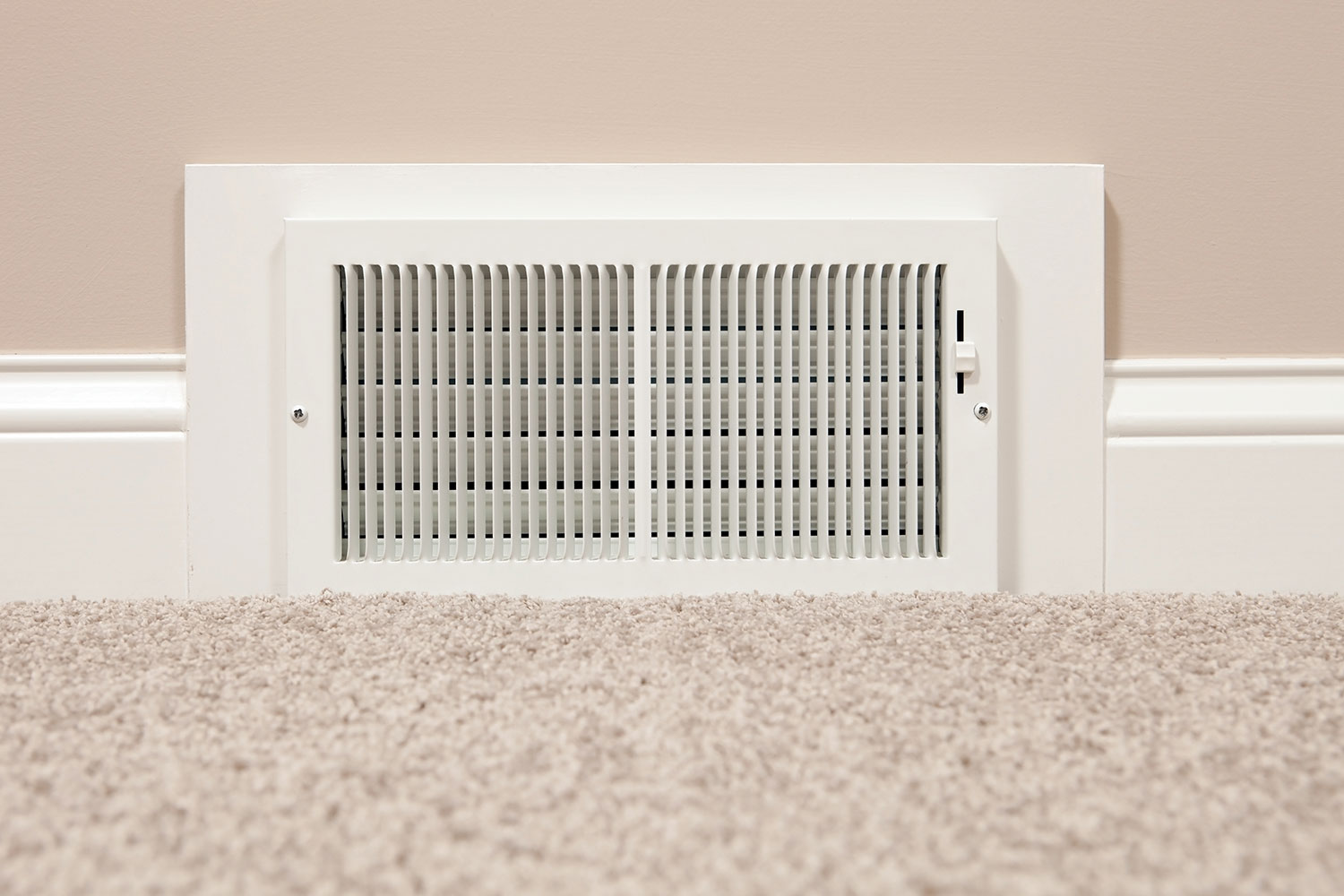Is Closing Vents in Unused Rooms a Good Idea?
You may be unknowingly damaging your ducts


Highlights
Closing vents in unused rooms can damage your ductwork.
Airflow isn’t diverted when you close vents in unused rooms; instead, pressure can build up and cause damage.
When airflow is restricted, HVAC coils can freeze or overheat.
It might first seem like a good idea to close unused air vents to regulate the temperature inside your home, especially if unused rooms are getting cooled or warmed more than the ones you are using. But you’re not doing your energy bills or your HVAC system any favors by closing off those vents.
Here, we’ll explain why you’re doing much more harm than good by closing air vents, as well as what you can do to conserve energy and save money.
The Effects of Closing Vents in Unused Rooms
The faulty logic behind closing a vent is this: By blocking off hot or cold air to an unused room, you’ll be diverting the air to the rooms you are using. But your HVAC system only knows how to heat or cool air to a certain temperature as you set it on the thermostat—and it will continue to do so even if the vents are closed. Ducts automatically send air down to the shaft to the next available opening. When you close vents, the air builds up internally, which is bad news for your whole HVAC system.
Let’s take a closer look at what could happen to your heating and cooling system when you close vents in unused rooms.
Damaged Ductwork
Ductwork is strong and stable, but it’s not enough to handle the pressure that builds when backed-up air is present. The air has to go somewhere, and that could be by leaking out through newly made holes and in the compromised ductwork.
This is why it’s so important to have your heating and cooling system inspected by a local HVAC technician each year. While the ducts only need cleaning on an as-needed basis—usually between three and five years—an HVAC pro can spot other problems with your ductwork and set out to remedy the situation before it becomes an expensive problem.
Closed Vents Tax Your HVAC System
You might think you’re asking your HVAC system to go easy by closing off air vents, but you’re actually making it work harder. HVAC systems are usually in it for the long haul—anywhere between 15 and 25 years. Yours can only last that long if you treat it well. By putting undue pressure on your heating and cooling system, it will not work as well and eventually, it might stop working at all.
The Coils Can Freeze or Overheat
Another reason not to restrict the airflow by closing vents in unused rooms is that the evaporator coils can either freeze or overheat, depending on the season. This could lead to a poorly performing HVAC system at best or a busted one at worst. And since the coils are only doing their job when you need your house cooled or warmed, you can count on your HVAC to break down in the height of the winter or summer.
Closing Vents in Unused Rooms Reduces Your HVAC’s Energy Efficiency
Your HVAC system is designed based on your home’s size, not how many vents there are. That means your HVAC system will continue to work even when vents in unused rooms are closed, which can reduce its overall energy efficiency.
Carbon Monoxide Leaks

Another reason to alleviate the stress on your ductwork? The pressure could damage the heat exchanger, which could cause carbon monoxide to leak. Carbon monoxide is known as “the silent killer” for good reason, so make sure you open those vents and keep fresh batteries in those carbon monoxide detectors. If you or your family is exposed to carbon monoxide, it could lead to carbon monoxide poisoning, which causes headaches, dizziness, and a slew of other symptoms. It can even be life-threatening.
Mold and Mildew Can Grow Inside the Ducts
Moist air that gets trapped inside ductwork can cause your house to feel humid and lead to the growth of mold and mildew. And because the air goes through the ductwork, mold and mildew can travel along to other parts of your house. Your HVAC system needs balance to work properly, so keep the air flowing by opening up all available vents.
Does Closing AC Vents Help Save Money?
Lowering heating or cooling costs is the primary reason you might close vents in the first place. Unfortunately, you’re likely doing more harm than good.
Closed vents contribute to the wearing down of your unit, so any money you thought you might save on cooling or heating will likely wind up going to paying a local HVAC repair person in the future.
For savvy spenders and eco-conscious homeowners, zoned HVAC systems may be a better solution. Depending on your budget and home size, you can have a system that cools two, three, or even four areas of your home at a time instead of one central HVAC system.
Frequently Asked Questions
While partially closed vents aren’t as damaging to your HVAC system as fully closed ones, they still aren’t solving the problem of redirecting the air where you want it.
No, closing the doors to unused rooms in your house won’t save energy. While this won’t necessarily cause problems for your ductwork—assuming you’ve left those vents open, that is—your HVAC will still be working much harder than it needs to in order to keep your home at a comfortable temperature.

